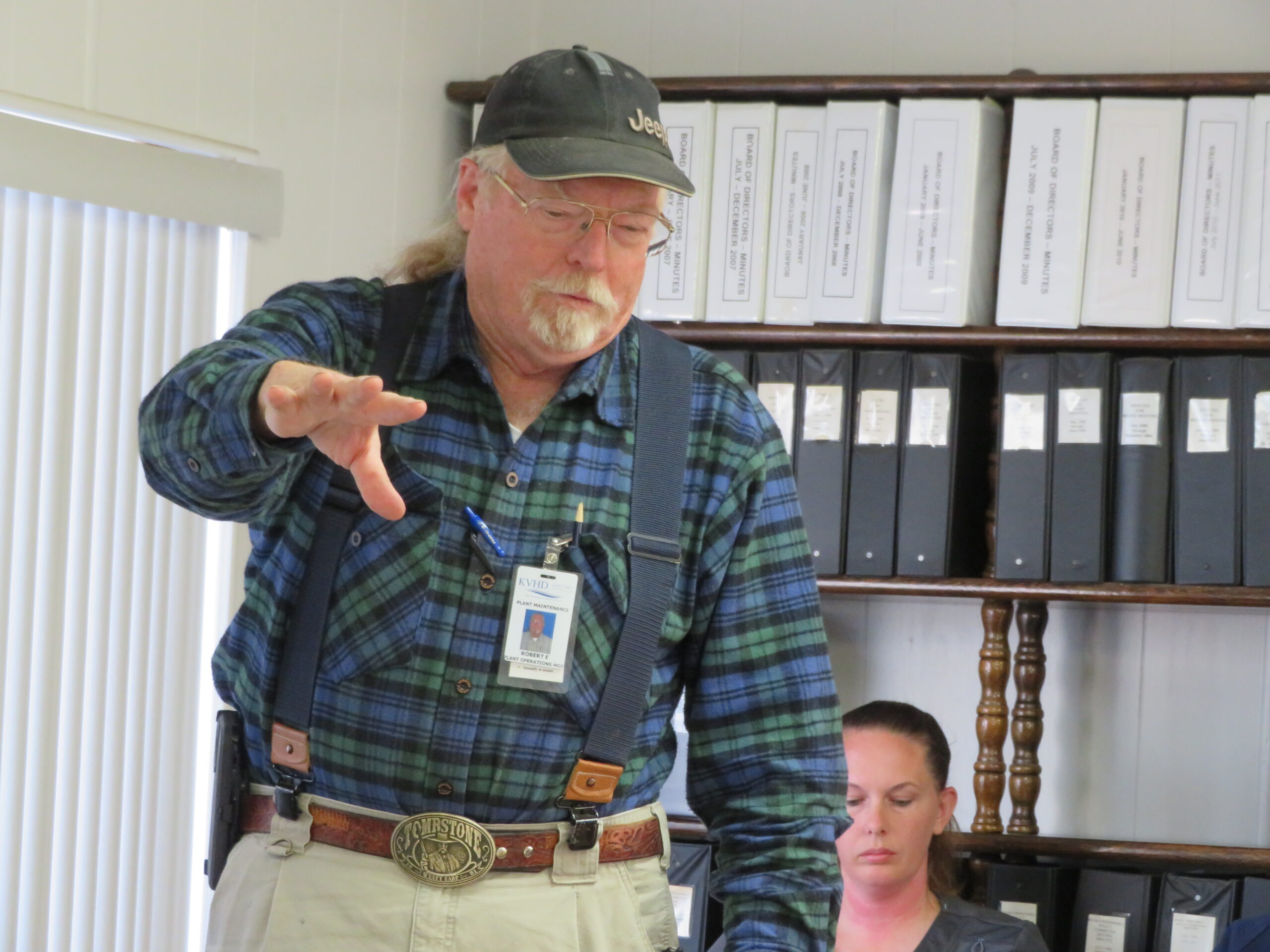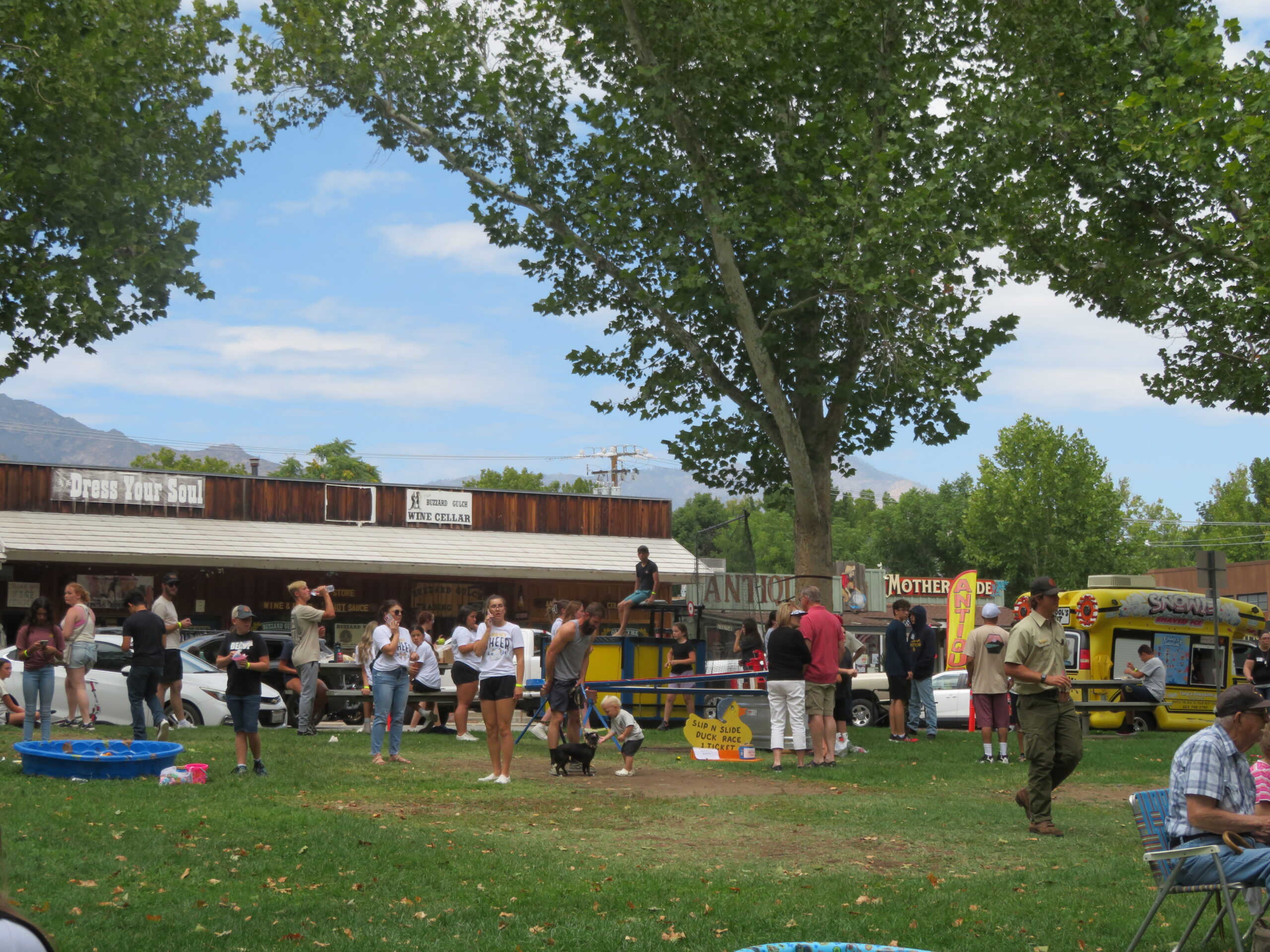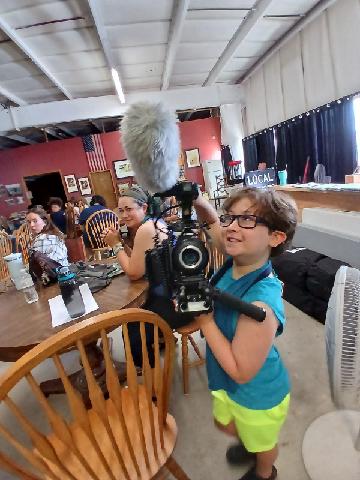Kern Valley Hospital Plant Operations Manager Bob Easterday.
Photo and Story by CATHERINE STACHOWIAK
During new business reports, last Thursday, at the Kern Valley Healthcare district’s board of directors meeting, Plant Operations Manager Bob Easterday talked about bids for a construction project at an administration building the hospital purchased.
“The good news was we got three bids. The bad news is what the pricing came in at,” Easterday said.
He brought the plans approved by the county and said bids came in at double what he initially expected.
“The scope of work is a very small portion of the building. We’re literally taking the two suites that had been opened for the church sanctuary. We’re putting the wall down the middle. On suite B we were adding a portion of a wall to create a storage room for records, and a T-shaped wall, of 60 inches high. And that was it. “
On the other side hospital staff was considering creating a couple of offices, for medical records, and some offices in the back, from a larger area, for other people such as IT to use during different phases of the project. A couple restrooms in the same facility needed some work and the existing air conditioning units needed to be re-ducted for a couple rooms they were creating from the larger space as well as a bit of electrical for the offices they would be creating out of a larger space.
Board member John Blythe noted that he agreed with CEO Tim McGlew that, “this is more than what the building cost,” he said.
The lowest bid for the project under discussion was from JTS Construction at $527,500 of Bakersfield. The mid price bid for the project came from Go JRM Construction out of Tehachapi and was $627, 302. JCJ Chavez Construction of Ridgecrest was the highest bid at $650,906.
Board member Gene Parks asked whether there were local contractors bidding on the project.
“My understanding is there was one person interested. He did not contact us in time to bid the project,” Easterday said.
The board discussed the idea of letting the local contractor bid on future projects and was notified by attorney Scott Nave that the hospital would not be allowed to favor any local contractors above others. Because the project was budgeted to exceed $125,000 any qualified contractors were welcome to make bids because the project required public bidding. The project was a prevailing wage project, which drives the costs up 130% to 140% above what a private project would cost. The contractors must also be registered with the California Department of Industrial Relations.
Previously the district went through the formal bidding requirements. The board could choose to reject all bids and to reexamine the project and come to the board with another project that is feasible to the district.
Board member Gene Parks thought it was ridiculous to have to pay for the project as one project, the way it was required, rather than paying for different aspects of the project separately.
Board member Ross Elliott moved that the board reject all bids on the project.
Going forward the board could meet with the Building and Planning Committee and come up with a new proposal to submit to the board or Building and Planning Committee. Kern Valley Healthcare District reserved the right in their proposal to reject all bids.
Easterday said he and CEO Tim McGlew would come up with a new plan and meet with Building and Planning.
Nave said any projects over $25,000 are prevailing wage projects and have to be bid on with contractors keeping payroll records for the union. There’s no way around that with public works projects. Nave thought it would be better in the long run to have the project as one general project because there’s no proof different methods of proposing projects in multi prime or design build don’t turn out to be less expensive.
Staff intended to come up with a less expensive plan possibly phase work or some other plan. “Everyone is concerned with the cost of the project especially relative to the value of the building,” Nave said.
Elliott pondered whether the district could deed the building to its foundation and let contractors build the project at half the cost.
Nave said they’d have to sell it to the foundation but couldn’t give it away to the foundation and they would still be required to do a prevailing wage project therefore the issues would still pertain.
Fred Clark suggested high wall cubicles might be a better option.
The board voted to reject bid project and re evaluate other options to use the building more cheaply.





